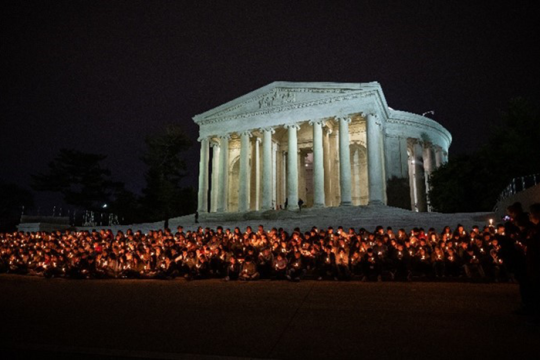Years ago homelessness was only found on the streets of cities, a phenomenon hidden from rural and suburban towns. However with a population of over 3.5 million people per year, homelessness is an issue that has spread to all areas of the country. Homelessness affects people of all races, religions, ethnicities, genders, and other various backgrounds. Unfortunately as homelessness has increased in the United States, the amount of violent acts committed towards these individuals has simultaneously followed the pattern. According to the National Coalition for the Homeless, during the last 15 years there have been 1,437 acts of violence towards homeless individuals, 375 of which resulted in the death of the homeless individual. With the intended goal of providing equal rights to homeless people through the means of medical care, free speech, free movement, voting, employment opportunities, and privacy provisions, the Homeless Bill of Rights was presented. The first state to adopt this legislation was Rhode Island in 2012 and since then Illinois, Connecticut, and Puerto Rico all ratified this bill.
As of June 11, 2014, Delaware entered the path for the ratification of this essential legislation. While the Homeless Bill of Rights would secure broader access to shelter facilities, legal counseling, and the education for the children of homeless families, many states are reluctant. In fact, discussions on the ratification of this legislation have only occurred in California, Minnesota, Missouri, Oregon, Tennessee, Vermont, Baltimore, Maryland, and Madison, Wisconsin. As Jews it is our obligation to help homeless individuals.
When our ancestors were slaves in Egypt, they faced horrible conditions, but they were freed from their enslavement. Since we can empathize with the situation of many homeless individuals, it is our duty as Jews to provide tzedakah. While donating money or food is helpful, there are larger steps that should be taken. According to Maimonides there are eight levels of charity, each grander than the one that precedes it. The lowest level is when a person unwillingly gives tzedakah, a situation that occurs quite frequently. When you reach the highest level of charity, it includes helping the person “strengthen their own hand until he need no longer be dependent on others”, through finding employment or other similar endeavors.
The passage of The Homeless Bill of Rights would do just as the highest level of charity suggests, helping homeless individuals search for job opportunities to allow self-sufficiency. This bill is the first US state-level law that has the intention of protecting the rights of homeless individuals. Ratifying the Homeless Bill of Rights in each state will make great strides for tikkun olam, and as Jews, we should do all that we can to help repair the world and aid those who are in need in our community, state, and country as a whole.
To find out more about how you can help, learn about the National Coalition for the Homeless, and take action here to support low-income housing!
Alia Degen is a rising sophomore at The University of Vermont. She is a Global Studies major with a minor in Spanish as well as a minor in Community and International Development. Originally from Groton, Massachusetts, Alia is a member of Congregation Shalom in Chelmsford, Massachusetts. This summer Alia interned for Public Citizen’s Global Trade Watch.
Related Posts
Image

Teens from North Carolina Speak About Environmental Justice
This year, as we approach Earth Day on April 22nd, we are amplifying the voices of our L'Taken participants. These teens, who are at the forefront of our fight for environmental justice and climate change, are not just the future-they are the present.
Image

Why is this Right Different?: City of Grants Pass, Oregon v. Johnson and the Passover Call to Action
As families prepare for the Passover seder and its celebration of freedom, the Supreme Court will hear a case in which the basic civil rights of unhoused people are at stake.
Image

Highlights from the 2023-2024 L'Taken Season
Another incredible L'Taken season has come to a conclusion! Over the 2023-2024 season, we had over 1,300 Jewish high schoolers from across North America join us in Washington, D.C. over our four weekends.
